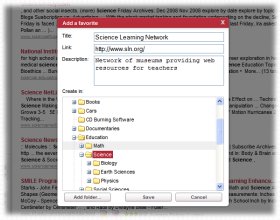|
Education
Web
Viewing 1-1 of 1 total results
the United Nations, World Bank, Amnesty International, and the International Red Cross. C16.[9-12].1 Summarize and evaluate the significant characteristics of the world‘s major political systems: Monarchy Totalitarian dictatorship Democratic systems o presidential system...
1
0
the United Nations, World Bank, Amnesty International, and the International Red Cross. C16.[9-12].1 Summarize and evaluate the significant characteristics of the world‘s major political systems: Monarchy Totalitarian dictatorship Democratic systems o presidential systems o parliamentary systems Socialism Communism C16.[9-12].2 Analyze the conflict between U.S. policies of isolationism versus intervention in world affairs. C16.[9-12].3 Identify and analyze U.S. foreign policy in
2
0
http://www.doe.nv.gov/Standards/SocialStudies/CompleteStandardsDec2008.pdf#page=2
www.doe.nv.gov/Standards/SocialStudies/CompleteStandardsDec2008.pdf#page=...
frame, analyze and solve problems and to make complex choices both inside and outside the classroom. In addition, students will need to learn how to articulate their thoughts and ideas effectively through multimedia communication for a variety <span class="highlight">of</span> audiences. Being literate in social studies is essential if students are to leave school with the ability to participate responsibly in local, national, and <span class="highlight">international</span> <span class="highlight">affairs</span> as global citizens and pursue a high standard <span class="highlight">of</span> living. Through the study <span class="highlight">of</span>
32
0
http://www.doe.nv.gov/Standards/SocialStudies/CompleteStandardsDec2008.pdf#page=32
www.doe.nv.gov/Standards/SocialStudies/CompleteStandardsDec2008.pdf#page=...
December 2008 Nevada Social Studies Standards Content Standard H4.0 - <span class="highlight">International</span> Relationships & Power - Students understand the interaction and interdependence <span class="highlight">of</span> nations around the world. Students understand the impact <span class="highlight">of</span> economics, politics, religion, and culture on <span class="highlight">international</span> relationships. At a minimum, students will maintain previous content and attain the following: H4 .0 I nt er nat ion al Relat ions hip s & P ow er Benchmarks: Grades 6 – 8
62
0
http://www.doe.nv.gov/Standards/SocialStudies/CompleteStandardsDec2008.pdf#page=62
www.doe.nv.gov/Standards/SocialStudies/CompleteStandardsDec2008.pdf#page=...
the United Nations, World Bank, Amnesty <span class="highlight">International</span>, and the <span class="highlight">International</span> Red Cross. C16.[9-12].1 Summarize and evaluate the significant characteristics <span class="highlight">of</span> the world‘s major political systems: Monarchy Totalitarian dictatorship Democratic systems o presidential systems o parliamentary systems Socialism Communism C16.[9-12].2 Analyze the conflict between U.S. policies <span class="highlight">of</span> isolationism versus intervention in world <span class="highlight">affairs</span>. C16.[9-12].3 Identify and analyze U.S. foreign policy in
|
